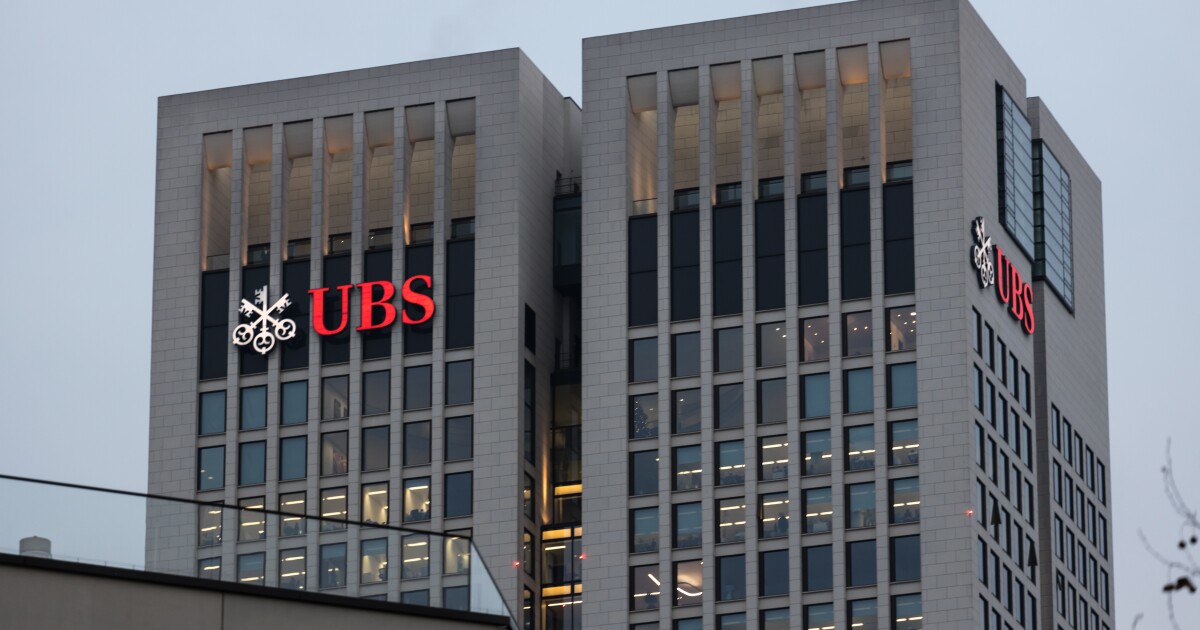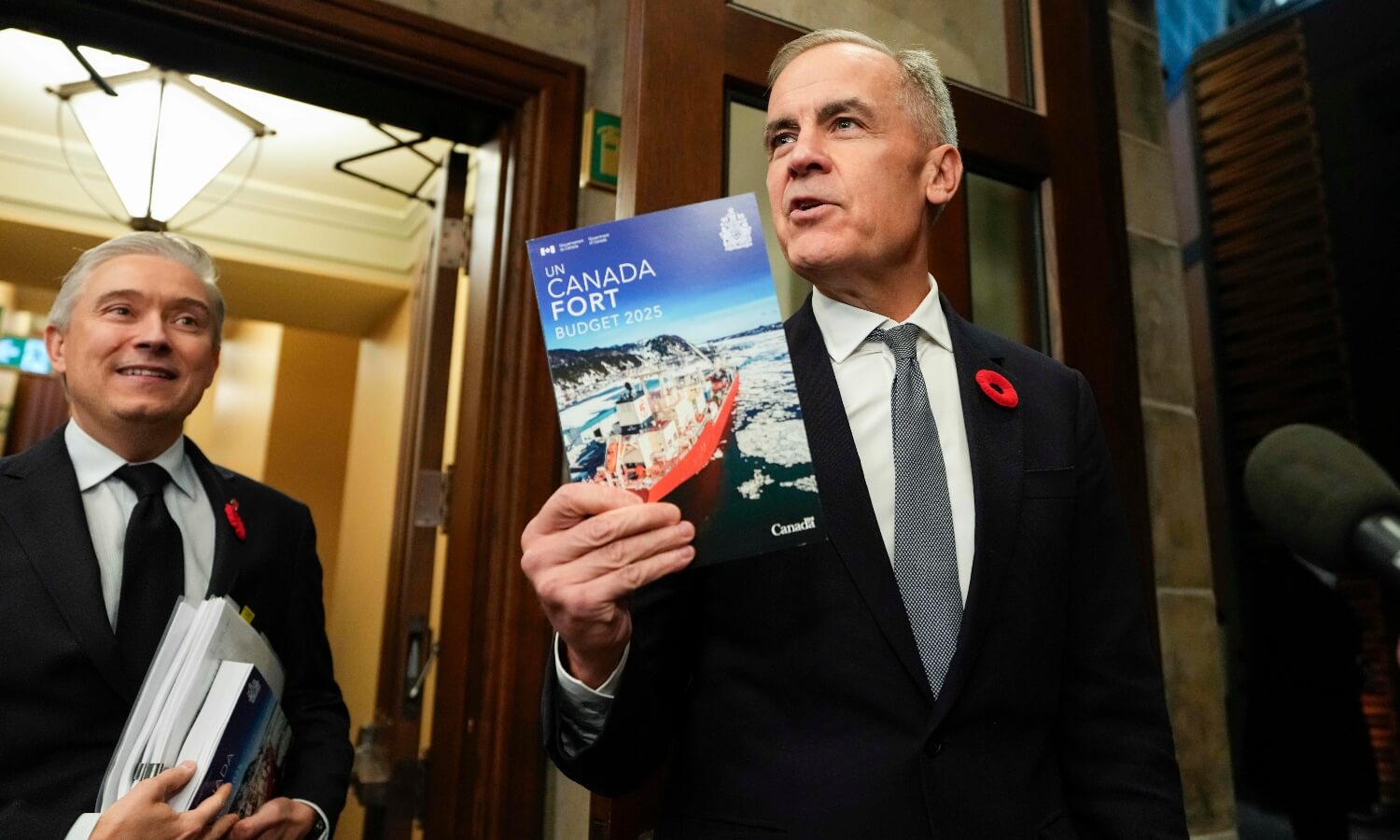Breaking with tradition, UBS is unveiling its 2026 U.S. advisor compensation policies earlier than usual, hoping to stem further advisor defections and boost incentives to work with ultrawealthy clients.
The changes range from increasing the payout ratios for advisors producing between $1 million to $3 million in annual revenue and to rewarding those who bring in clients with $10 million or more in assets. The updates also include making it easier for junior team members to share in growth incentives and increasing the limits for claimable business expenses, according to sources familiar with the firm’s pay policies. In general, the changes are meant to reward loyalty to the firm amid a recent stream of defections to industry rivals, while also giving advisors a push to move up the revenue-production scale.
Of the major wirehouses, which also include Morgan Stanley, Merrill and Wells Fargo, UBS’ U.S. wealth management unit is usually the last to announce changes to its advisor pay policies. Its first-out-of-the-gate release this year comes amid an acceleration of advisor departures following the firm’s announcement last year of changes largely aimed at lowering payouts for brokers at the lower end of the production scale.
READ MORE:What to expect in advisor pay in 2025Best advisor pay for $400K producersBest advisor pay for $600K producersBest advisor pay for $1M producersBest advisor pay for $2M producers
“This year’s plan is a direct outcome of a truly collaborative and constructive dialogue with Advisors and Field Leaders and is designed to provide transparency and simplicity, as well as support the future growth and development of your businesses, our clients and our firm,” according to a memo UBS circulated to advisors Tuesday.
Increase for $1M to $3M producers and 60% payout for ultrahigh producers
According to sources familiar with UBS’ pay policies, the changes being made to the firm’s basic grid include:
Increasing the payouts for $1 million to $3 million producers by half a percent. UBS advisors generating $1 million now receive a 49% payout rate and will go from making $490,000 to $495,000 next year under the new plan. Advisors generating $2 million now receive a 51% payout rate and will go from making $1.02 million to $1.03 million next year.Providing a 1% bump in the amounts that advisors producing between $3 million and $4 million are paid in upfront monthly installments. Like most large wealth managers, UBS disburses some pay quickly after it’s earned and then holds some back in the form of deferred compensation to reward advisors who stay with the firm for a set number of years. The percentage of upfront cash-to-deferred comp for advisors in the $3 million-to-$4 million bracket is going up from 85% to 86%. That will bring it in line with payout ratios for advisors in other tiers.Adding a special 60% compensation rate for advisors or teams producing $20 million or more a year. Sources familiar with the matter said it will be the highest payout percentage in the industry. Unlike many other compensation rates in wealth management, this one doesn’t depend on recipients’ length of industry experience. UBS’ current highest payout rate is 59.5% for advisors producing at least $10 million a year and with two years of experience.
Louis Diamond, the CEO of the recruiting firm Diamond Consultants, said the changes are obviously aimed at rolling back the most unpopular modifications UBS announced last year. In 2024, UBS cut its payout rates for many advisors producing $1 million or more in annual revenue by roughly 0.5%, among other changes.
Diamond predicted the announcement of the 2026 UBS pay policies will be the “olive branch” some advisors had been looking for, and that some who had been contemplating leaving will conclude “they listened to us” and decide to stay.
“Others, though, will say, ‘They’ve already shown their hand, and this is what they are capable of,'” Diamond said. “So are they going to just do the same thing again two years or five years or 10 years from now? They are still a cost-cutting position. They are still chasing their profit margin.”
Strategic alignment
One of UBS’ main goals for its U.S. wealth management unit has been to raise the amount of revenue the division gets to keep after subtracting expenses. That percentage was just above 12% in the second quarter, up from just barely over 9% the year before. Still, it lags far behind the numbers posted by industry rivals like Morgan Stanley, which had a 28.3% operating margin in its second quarter.
UBS is trying to improve its profits and margins in several ways. Like many firms that have wealth management arms tied to large banks, UBS encourages its advisors to move investors into banking products and services. Such “cross-selling” not only provides additional revenue but also makes it harder for clients with so many accounts and relationships to leave for other institutions.
Also like other wealth managers, UBS places priority on advisory accounts that generate fees on assets under management over traditional brokerage accounts, which rely much more on commissions collected from sales of individual investment products. Advisory accounts are generally prized for their ability to generate steady streams of revenue.
With both goals in mind, UBS’ changes for next year include:
Increasing the payouts advisors receive for moving clients into savings accounts. They now receive 0.05% of assets held in those accounts. That will go up to 0.1% (10 basis points.)Allowing advisors to receive compensation for mutual funds that are moved into advsiory accounts from brokerage account. UBS decided this year to end advisors’ ability to receive credit for trailing commissions on sales of mutual funds in client’s brokerage accounts. Trailing commissions are product fees investors pay every year they own a particular investment such as a mutual fund or insurance product. The change next year will allow advisors to receive compensation, at no additional cost to clients, for any income they may be giving up by moving mutual funds and similar investments into advisory accounts. The offer will last for all of 2026 and be continue for 12 months following clients’ enrollment into advisory accounts.
Changes to growth incentives
UBS already provides advisors with various incentives for bringing in net new assets to manage, for securing higher returns on assets already under management and for bringing in clients with $1 million or more in assets. It’s adding to those incentives by:
Providing advisors with additional rewards for bringing in clients with $10 million or more or assets. This sets the firm’s priorities even more on working with high net worth and ultrahigh net worth investors, a long-standing market for UBS and its predecessor U.S. brokerage PaineWebber, which UBS acquired in 2000. Moving away from a system that awards incentives only if individual advisors hit the firm’s growth goals and instead allowing teams of advisors to claim the rewards if they meet the same criteria. What’s more, UBS will allow a team of advisors to receive whichever of the two is highest: the incentives provided for an individual’s reaching the goals or from a team’s doing the same. Sources familiar with the new pay policies say that the current system tends to reward senior advisors, and the goal now is to be more inclusive of junior team members.Giving junior advisors on teams more time to reach a production threshold that allows them to receive their maximum possible payout rate. Advisors are now paid a share of whatever the highest-producing member of their team generates. But to receive that payout rate, they themselves need to be generating at least $750,000 a year for the firm by their fifth year of employment. The changes next year would give them until their 10th year to hit that goal, although they have to be making at least $500,000 by year six.
Other perks for advisors
Some of the changes are also aimed at making things a little more accommodating for advisors who remain at the firm. Among other things, UBS is:
Raising its limits on advisors’ ability to claim business expenses. The lowest producers among advisors are now allowed to claim as much as $3,500 a year and top producers as much as $10,000. Those limits will be increased to $5,000 and $17,500, respectively, next year.Increasing the percentage of deferred compensation paid in the form of UBS stock. Advisors now receive half of their deferred comp in cash and half in equity shares. Next year, they can choose to move the stock allocation up to 75%.
Current comp policies led to increased advisor attrition
UBS announced changes to 2025 advisor pay in November 2024. Along with eliminating advisors’ ability to collect trailing fees on mutual funds and similar products, UBS lowered its payouts for advisors on the lower end of the production scale. That latter change was in keeping with many wealth managers’ steady push to move advisors up the revenue-generation ladder while penalizing those who don’t show sufficient business growth.
The firm also eliminated a payment system called the Combined Team Grid, which had allowed wealth managers on advisory teams to be paid out a percentage of the group’s total production. Its replacement was a Highest Producer Grid, which allows advisors on a team to receive payouts only as a percentage of the revenue generated by the highest-producing member.
UBS executives have acknowledged the changes would probably drive some advisors to leave. Discussing earnings in February, Chief Financial Officer Todd Tuckner said “our efforts to align financial advisor incentives with our strategic priorities may result in a short-term increase in [financial advisor] attrition, creating an additional headwind for net new assets in the coming months.”
In an earnings call in July, UBS reported it ended its second quarter with 5,773 advisors in its Americas unit, which includes the U.S., Canada and Latin America. That was down by 111 advisors from the first quarter of 2025 and by 229 advisors from the second quarter of last year.
Some of the departures have been big. On Tuesday, LPL Financial announced a group of former UBS advisors with $1.25 billion under management had come over to start a practice called Ox Road Capital, in Greenville, South Carolina. That came just a few weeks after LPL Financial pulled in a large team formerly managing $1.6 billion and generating $7.1 million a year for UBS in Merced, California.
RBC Wealth Management has also been a magnet for departing UBS advisors. Its recruited teams include:
Other destinations for departing UBS teams in recent months include JPMorgan, Wells Fargo, Ameriprise and Raymond James.
The compensation consultant Andrew Tasnady, the founder and managing partner of Tasnady & Associates, said usually when firms make changes to their compensation policies, the result is detrimental to at least some advisors. UBS is bucking that trend this year by introducing modifications that will generally only benefit advisors.
“It shows that UBS management is trying to make some amends for last year’s changes,” he said. “It should help lower the temperature among advisors for immediately considering leaving. It also bodes well for future policies and direction.”
But Ron Edde, an industry recruiter and the president and CEO of Millennium Career Advisors, said that for many advisors, the damage has probably already been done.
“The firm is guilty of doing the same thing to its advisors that Las Vegas casinos are doing to their customers,” Edde said. “It’s letting greed and the bottom line abuse those who bring in the revenue.”
“They can try lowering their prices for $75 buffets and $25 cocktails, and it may help stop the bleeding,” he added. “But it’s probably too little, too late.”
(This article has been updated to include additional details and comments from industry experts.)



























